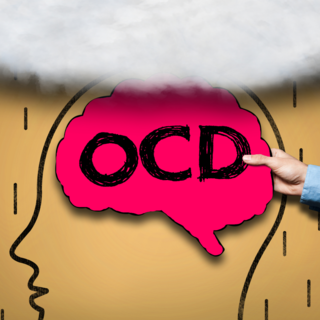Can OCD Be An Autoimmune Condition? - Psychology Today
Obsessive-Compulsive Disorder (OCD) manifests as a debilitating set of symptoms that impact 1 to 3 percent of the adult population. To date, the most recognized effective interventions for OCD are a combination of psychotherapy and psychiatric interventions. However, half of the population who suffer from OCD symptoms do not respond to these interventions (Endres et al., 2022).
In an effort to understand and improve treatment options, Enders et al. (2022) explored specific pathogenic mechanisms that could mediate treatment resistance to OCD. In this review paper, the authors analyzed the body of evidence for a link between OCD and immune activation.
Previous studies have indicated that obsessive-compulsive symptoms could be associated with Pediatric Autoimmune Neuropsychiatric Disorder Associated with Streptococcal (PANDAS).

Following infection, the body sometimes mistakenly directs an immune response to attack healthy tissue in the brain resulting in inflammation in the Basal Ganglia area of the brain (Moleculera Labs). This area is responsible for motor control, executive functions and behaviors, and emotions. As a result, neuropsychiatric symptoms emerge and manifest as tics, OCD, behavioral, emotional, and sensory dysregulation, restricted eating, and more.
A Danish study from 2017 reviewed a cohort of 1,067,743 children that demonstrated that children with positive streptococcal test results had an increased risk for developing OCD.
While PANDAS is associated with Strep infection, it was demonstrated that other pathogens and infections could trigger the immune system. Pediatric Acute Neuropsychiatric Syndrome (PANS) is a broad umbrella term for post-infection neuroinflammation triggered by infections such as Mycoplasma pneumonia, Borrelia burgdorferi, Borna disease virus, and Toxoplasmosis gondii, and more recently relevant studied investigated post-COVID-19 neuropsychiatric symptoms (Endres et al., 2022).
Endres et al., (2022) elaborated their review on a large number of studies linking OCD to different types of autoimmune responses, including Autoimmune Encephalitis (AE) and Central Nervous System autoimmune conditions such as Multiple Sclerosis, other systematic autoimmune diseases, and other forms of OCD of AE patients with anti-NMDA-R, anti-GABAA, anti-dopamine (D1/D2), anti-basal ganglia, and anti-Ma2/CV2 antibodies.
Three causes of neuroinflammation may manifest as OCD (Endres et al., 2022):
- "A combination of infectious and autoimmune processes (e.g., in PANDAS/PANS or in patients with anti-NMDA-R encephalitis after Herpes simplex encephalitis).
- Autoimmune mechanisms (e.g., in patients with neuronal autoantibodies or multiple sclerosis).
- Infectious cause (i.e., low-grade "encephalitis" caused by various neurotropic viruses)."
Treatment of Autoimmune OCD should include all three components:
- Psychotherapy and psychiatric medications (antidepressants, antipsychotics).
- Antimicrobial medications (antibacterials, antivirals, antiparasitical drugs).
- Anti-inflammatory drugs (NSAID), immunotherapies (steroids, intravenous immunoglobulins (IVIG's), Plex (plasma exchange).
THE BASICS
As a result of this review, the authors suggest that an autoimmune response is one possible root cause of OCD and that pathophysiologically subtypes of OCD should be distinguished:
1. OCD rooted in PANDAS/PANS (infection triggered).
2. OCD rooted in neuronal antibodies:
- Against well-characterized cell surface antigens (such as NMDA-R).
- Against well-characterized paraneoplastic, intracellular antigens (such as Ma2).
- Against non-well-characterized and novel neuronal autoantibodies.
3. OCD in the context of systemic autoimmune diseases with potential brain involvement (such as systematic lupus erythematosus).
4. OCD in the context of central nervous system autoimmune disorder (such as multiple sclerosis).
The authors suggested criteria for autoimmune OCD compared with established ICD-10/11 and DSM-5 classification criteria for OCD, as well as PANDAS/PANS criteria. See more info in this table.
OCD Essential Reads
In conclusion, it is vital to distinguish between the different subtypes of autoimmune root causes of OCD. Concrete interventions should include multidisciplinary consulting teams, including psychiatrists, neurologists, neuroimmunologists, rheumatologists, and infectiologists.
Personalized treatments should be based on the experience of patients with AE/AP and other neuroimmunological disorders, under the assumption that immunotherapy in patients with clear autoimmune causes can lead to an improvement in prognosis.
Comments
Post a Comment